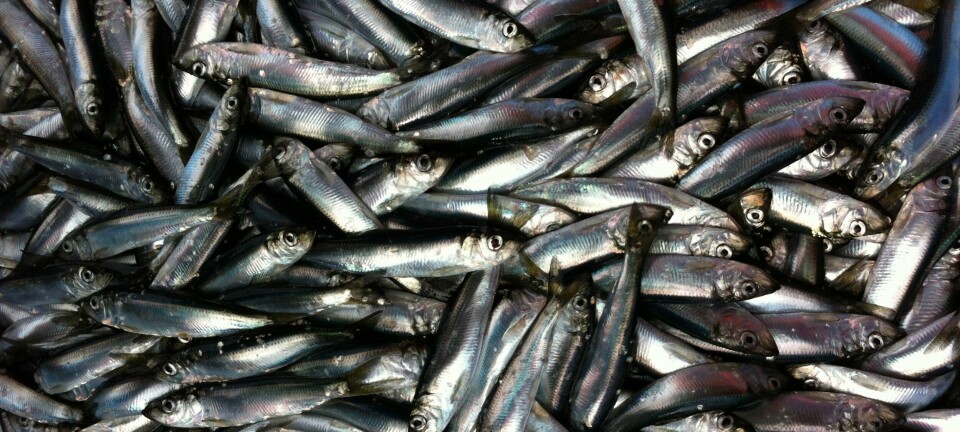
Salmon sector urges Norwegian government to end fish quota deadlock
Salmon farmers and feed producers faced with the prospect of having to stop buying Northeast Atlantic blue whiting – a key marine ingredient for salmon feed - have urged the Norwegian government to talk with them about agreeing its quota for the fish with other countries.
The so-called Coastal States that fish the Northeast Atlantic region agree on how many tonnes of whiting should be fished, but not on what percentage of that total each state can have. This means the total agreed annual catch is often substantially exceeded, with Norway and the Faroe Islands being accused by the European Union - which is itself classed as one of the Coastal States - as the worst offenders.
In April, Charlina Vitcheva, the director of the EU’s Directorate-General for Maritime Affairs and Fisheries, said quota increases implemented by Norway and the Faroe Islands represented a step away from the sustainable management of the stock.
Iceland, the UK, and the EU had been more prudent, but the Faroes and Norway had acted irresponsibly and were directly to blame for the fish stock’s loss of its Marine Stewardship Council’s Blue Label for sustainable fisheries, Vitcheva said.
Improvement project
Coastal States negotiators meet in Oslo this week, and the Northeast Atlantic Pelagic Advocacy Group (NAPA), an alliance of more than 70 companies including fish farmers, feed producers, and retailers, wants to underline the severity of the situation facing the Northeast Atlantic blue whiting fishery, and the real threat this poses to the fish feed supply chain, and salmon production.
The loss of MSC certification has a knock-on effect for feed producers and fish farmers who must use marine ingredients from a certified sustainable fishery to comply with their own certifications.
They have been able to continue using whiting because NAPA launched a new class of Fishery Improvement Project (FIP) in 2021 to drive progress towards a political agreement for key pelagic stocks.
But the blue whiting FIP is due to end in October, and with no resolution to the political deadlock around blue whiting management in sight, NAPA says the future of the fish feed industry hangs in the balance in the waters off Norway’s coast.
Boycott threat
Three major feed producers – BioMar, Cargill, and Skretting Norway – will all cease blue whiting purchases if the FIP fails and no agreement is reached.
All three companies are members of NAPA, along with salmon farmers such as Mowi and Scottish Sea Farms, retailers Asda, Marks & Spencer, Tesco, Waitrose, Morrisons, Aldi, and the Co-op, and feed producer Northeast Nutrition, owned by salmon farmer Cooke Aquaculture.
In an open letter to the Norwegian government, NAPA’s members state: “As a nation at the cutting-edge of fish aquaculture, you know the value and importance of blue whiting to the world’s fishmeal industries and, as a result, to the secure supply of seafood across Europe and the world. More than this, you are a nation with a track record of spear-heading ambitious action for the sustainable future of our oceans and ocean industries: to stay true to these ambitions, urgent measures to protect blue whiting stocks are needed.
This can't be ignored
“As an alliance of more than 70 companies – supported by the catching sector and a majority of salmon production in Norway – we are stating clearly that the security of many of our businesses, and therefore the future of the industry at large, also relies on the sustainable management of this stock. This is a situation that cannot be ignored.”
The letter concludes: “NAPA has one simple ask for you: meet with us. Meet with NAPA members, salmon producers, and the catching sector collectively, to work together towards a vision for a sustainable sharing agreement for this key pelagic stock.
“We understand the complexities of the situation. We know the challenge presented by the political deadlock. We believe that a nation like Norway, world-leading in salmon production and at the forefront of ocean advocacy globally, should be an ally - not a target - in our own advocacy efforts.”

























































